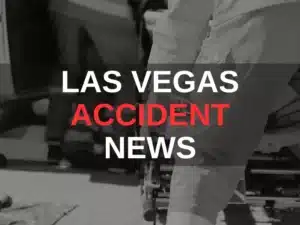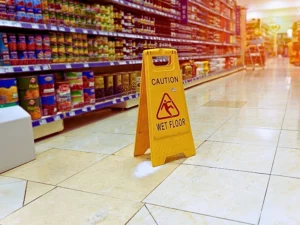Awareness of the top 5 defective products of 2023 can impact consumer safety. From faulty automobile parts to contaminated pharmaceuticals, understanding these defects is crucial. Beyond recognition, comprehending what constitutes a defective product in this region is pivotal for every consumer’s well-being. Moreover, delving into Nevada’s laws on product liability and recognizing the liability parties involved adds another layer of protection.
What Is Considered a Defective Product in Nevada?
In Nevada, a defective product encompasses various flaws that pose risks to consumers. Understanding what constitutes a defective product is crucial, as it directly impacts your safety and rights as a consumer. What you don’t know could put you in danger.
A defective product in Nevada can fall under three primary categories:
Design Defects: These occur when the product’s design is inherently flawed, making it unsafe for its intended use. For instance, a vehicle with a design flaw that causes it to roll over easily.
Manufacturing Defects: These defects occur during the product’s manufacturing or assembly, deviating from the intended design and resulting in a hazardous product. An example could be a batch of medicine contaminated during the production process.
Marketing Defects (Failure to Warn): This type of defect occurs when a product lacks adequate warnings or instructions regarding its proper use, resulting in dangers to consumers. For instance, a household cleaner without clear warnings about its corrosive properties.
While understanding what constitutes a defective product is pivotal, recognizing the top defective products of 2023 can further safeguard consumers.
Signs of Product Defects
Recognizing a defective product is fundamental to safeguarding yourself and your loved ones from harm. While some defects might be obvious, others may not reveal themselves until an accident occurs. Here are crucial pointers to identify potentially defective products:
Unusual Functionality
Any product that behaves unusually or differs significantly from its intended function might have a defect. This could range from electronics overheating to unexpected reactions from medications.
Visible Flaws
Physical deformities, irregularities, or poor craftsmanship in a product might indicate manufacturing defects. For instance, a chair with unstable legs or a toy with loose parts.
Safety Recalls or Warnings
Pay attention to product recalls and safety warnings issued by manufacturers or regulatory bodies. These alerts often highlight potential defects or hazards in products you may be using.
Sudden Malfunctions
A product suddenly ceasing to function as expected, especially in a manner that poses risks, could indicate a defect. This might include brakes failing in a vehicle or sudden fires in electronic devices.
Inadequate Instructions or Warnings
Products lacking clear instructions or safety warnings can be considered defective. Be wary of products that don’t provide sufficient guidance for safe use.
Tips for Avoiding Defective Product Injuries
Identifying defective products is essential for consumer safety in Nevada. Here are some practical tips to help you recognize hazards before they pose a risk. By following these guidelines, you can make informed choices and safeguard yourself and your family from the dangers of defective goods:
Research and Stay Updated
Regularly check product reviews, recalls, and safety alerts to stay informed about potential defects or hazards associated with specific products.
Inspect Products Thoroughly
Examine products for any visible flaws, irregularities, or unusual functionalities before purchasing or using them.
Follow Instructions and Warnings
Adhere strictly to product usage instructions and safety warnings. If instructions are inadequate or unclear, reconsider using the product.
Monitor Product Performance
Keep an eye on how consumer products perform over time. Any sudden malfunctions or unexpected behavior could signal a defect.
Report Suspected Defects
If you suspect a product is defective or poses a safety risk, report it to the manufacturer or appropriate regulatory agency to prevent potential harm to others.
Nevada Laws on Defective Products
Nevada’s legal framework concerning defective products revolves around ensuring consumer protection and holding responsible parties accountable. The state adheres to strict liability laws when it comes to lawsuits in examples of product liability cases. Through such actions, individuals injured by defective products may seek compensation without the need to prove negligence.
Under Nevada law, manufacturers, distributors, and sellers can be held liable for damages caused by defective products, emphasizing their duty to produce and supply safe goods. The law provides consumers with a robust mechanism for seeking recourse in cases involving injuries or harm caused by defective products, promoting safety standards and accountability within the marketplace.
Top 5 Defective Products of 2023 in Nevada
Identifying prevalent defective products is crucial for Nevada consumers to remain vigilant about hazards. In 2023, several products faced recalls and safety concerns due to defects that posed risks to consumers.
Here are the top 5 defective products that garnered attention in Nevada:
Faulty Automobile Parts: Several vehicle models faced recalls due to defects in critical components, such as airbags, braking systems, and electrical malfunctions, leading to safety hazards on the road.
Contaminated Pharmaceuticals: Instances of medications contaminated during manufacturing or distribution raised alarms, causing adverse health effects or unintended reactions in patients.
Defective Consumer Electronics: Electronic devices with overheating issues, battery malfunctions, or design flaws leading to electrical hazards were among the top products flagged for safety concerns.
Tainted Food Products: Recalls of food items due to contamination, inadequate labeling, or undeclared allergens highlighted risks of illness or allergic reactions among consumers.
Unsafe Children’s Products: Toys, furniture, and childcare items with choking hazards, flammability issues, or structural defects posed risks to children, resulting in safety recalls and consumer alerts.
Remaining informed about these top defective products in Nevada can empower consumers to make informed choices, mitigate risks, and take necessary precautions to ensure their safety and well-being. Stay updated on recalls and safety alerts to protect yourself and your family from potential harm posed by defective products.
When Do You Need a Lawyer?
Seeking legal counsel becomes essential when dealing with injuries or damages caused by defective products in Nevada. Seeking legal advice helps you understand your rights and pursue compensation for medical expenses, lost wages, and pain and suffering through an individual or product liability class action lawsuit.
Faulty products cases involving multiple parties, intricate liability issues, or disputes with manufacturers often require the expertise of a skilled attorney familiar with product liability laws. If your claim for compensation from a defective product is denied or undervalued by insurance companies or responsible parties, a lawyer will negotiate on your behalf and advocate for your rights.
Acting promptly is crucial, as Nevada has specific time limits (statute of limitations) within which legal action must be taken for product liability cases. Consulting a lawyer promptly ensures you meet these deadlines and protect your legal rights effectively.
Engaging an experienced product liability lawyer can impact the outcome of your claim, helping ensure fair compensation and a comprehensive understanding of the legal process surrounding defective products in Nevada.
Who Can Be Held Liable in Product Defect Cases?
In Nevada, multiple parties along the product’s chain of distribution can be held liable for injuries or damages caused by a defective product through product liability claims. These potentially liable parties include:
Manufacturers
Those involved in designing, producing, or assembling the product can be held accountable for defects occurring during the manufacturing process or due to inherent design flaws.
Distributors and Retailers
Entities involved in distributing or selling the defective product can also be held liable. This includes wholesalers, retailers, and anyone in the chain of supply responsible for getting the product to consumers.
Component Parts Manufacturers
Manufacturers of individual components or parts used in a larger product can be held responsible if their component is defective and contributes to the overall product’s hazard.
Product Designers
Those responsible for designing the product may bear liability if flaws in the design directly contribute to its hazardous nature.
Determining liability in a product liability case often involves investigating the circumstances and identifying where the defect originated within the product’s creation or distribution chain. Understanding the potentially liable parties is critical when pursuing compensation for injuries or damages caused by defective products in Nevada.
Importance of Consumer Awareness and Product Safety
Consumer awareness and prioritizing product safety are paramount in preventing injuries and mitigating risks associated with defective products. Staying informed about product recalls, safety alerts, and hazards empowers consumers to make educated purchasing decisions and take precautions when using everyday items. By staying vigilant, understanding product risks, and following safety guidelines, individuals can protect themselves and their families from harm caused by defective products. Additionally, consumer awareness encourages manufacturers and sellers to uphold higher safety standards, fostering a marketplace where product safety is a priority, ensuring a safer environment for all consumers.





